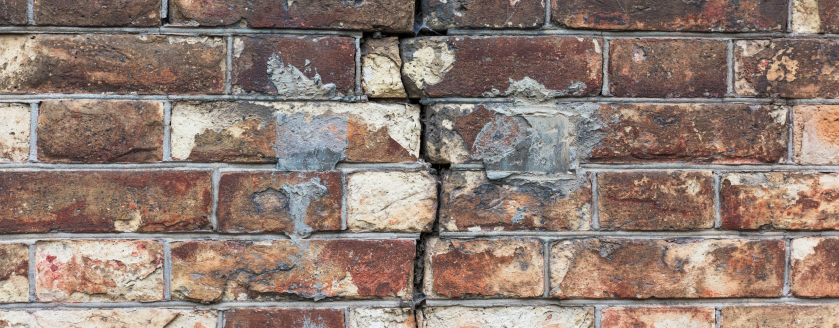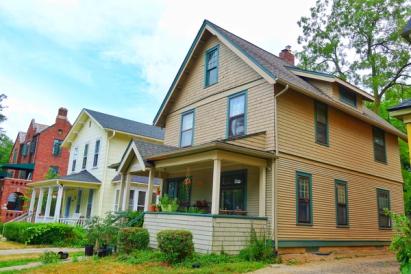House Inspection Checklist
Written by:
Ted Voelkel
Ted Voelkel
Personal Finance Writer
Ted Voekel is a personal finance writer covering the mortgage industry for Own Up.
See full bio
Fact Checked by:
Dan Silva
Dan is the Vice President of Marketplace Lending at Own Up. Throughout his career, he has held executive leadership positions in the mortgage and banking industry.
See full bio

A house inspection checklist? Isn't that what you hire a home inspector for?
Yes, of course, it is.
If you don't hire a home inspector certified by ASHI (the American Society of Home Inspectors), you're asking for trouble once you close on your house. It's not just older homes that need to be inspected. A new home may still not be up to code or up to par. Your real estate agent can recommend reliable home inspection companies to conduct a professional home inspection report.
But there could be significant issues clearly visible when you do your first or second walkthrough of a home, well before you make an offer.
If the issues are major ones – and you're paying enough attention to notice them – you can save yourself a lot of time and money by walking away even before you're tempted to sign a purchase and sale agreement. Having a professional inspection done will also bring to light minor issues with the home that might not be obvious to an untrained eye. The inspection will give you a preliminary idea of how much you'll have to spend on minor repairs or upgrades. This is why we recommend that you never waive your right to a home inspection contingency, which allows you to back out of a sale if the property’s inspection reveals undisclosed issues.
But what if the professional inspection is just not enough to make you feel confident in the home’s condition? The reality is that not all home inspectors are as diligent as you'd hope. Some may not be on the lookout for specific issues you consider to be deal-breakers, and some potential issues are out of the scope inspector would even attempt to note (for example, any issues with a pool or with solar panels would almost always be noted as exclusions on your home inspection reports). Quite frankly, home inspection reports are long and difficult to read.
For all of those reasons, your home inspection checklist can be an essential backup tool to ensure that everything goes smoothly after your offer is accepted but before you release the home inspection contingency. We also recommend that you attend the professional inspection so that you can ask questions and see potential damage firsthand. Start a dialogue with your home inspector so that he or she is aware of the potential issues that matter the most to you. Try not to worry too much about minor issues that can be easily and cheaply fixed.
Home Inspection Checklist for a Home Buyer
Yard
- Is the lawn adequately maintained, or are there patches or soggy areas?
- Does the property slope away from the house, with good drainage? Is there any standing water?
- Are the driveway and other paved areas cracked or uneven?
- If there's a septic tank, is it leaking?
Roof
- Are any shingles missing, or are there patches where the roof may have leaked previously?
- Are the chimney and flashing in good shape?
- Are the gutters and downspouts in proper condition? Do they drain as expected, or have they been neglected? (That could be a sign that the house hasn't been appropriately maintained.)
- Are the soffits and fascia in good shape?
- Question for the owner: How old is the roofing?
Exterior
- Is the foundation in good condition, or is it cracked or crooked?
- Are there large trees (which would have large roots) near the home's foundation?
- Are there any signs of damage from insects, termites, or rotted wood?
- Are the door frames all square, or are they sagging or bowed?
- Does the garage door work properly?
- Is the siding or stucco intact or loose, and is any damage visible? Is any paint chipped or fading?
- Question for the owner: How old is the exterior paint job or siding?
Interior: General
- Do all of the doors and windows work? Are the frames caulked or insulated?
- Is there enough ventilation in every room?
- Does the house smell of mold or smoke? Are there any other foreign odors?
- Are the floors in good shape? Will any need restoration or replacement?
- Are the ceilings even and intact? Are there signs of previous water damage from leaks? Will any ceilings need repainting?
- Are there cracks in any walls or ceiling, or where the walls join the ceiling?
- What is the condition of the wall coverings, drapes or curtains?
- Do the electrical outlets work, are they grounded, and are there enough in each room? Do all the light switches work?
- Are stairs and railings solid and sturdy?
- Are carbon monoxide and smoke detectors installed?
- Questions for the owner: Has there ever been a fire in the home? Has the home ever needed special treatment for insects or other pests? What type of, and how much, insulation is there in the walls and ceiling?
Interior: Attic
- Does the roofing have water stains (a sign of previous leaks)?
- Are there any droppings, wood shavings, or other signs of rodents or insect infestations?
- Is there enough ventilation and adequate insulation in the attic's walls and floors?
- Are there exposed wires or splices which could be fire hazards?
Interior: Basement
- Are there signs of moisture or stains from previous flooding or leaks?
- If there's a sump pump, does it work?
- Is there any cracking or flaking in the exposed foundation?
- Is visible wood solid and soundly attached to the foundation? Any sign of insect damage?
- If there's a crawl space, is it adequately vented and insulated, with no signs of damage from water or pests?
Appliances
- Which appliances (refrigerator, oven, dishwasher, washer/dryer, etc.) come with the house? Do they all work properly?
- Question for the owner: How old is each appliance?
Subsystems
- Do the heat and air conditioning work properly? Are there multiple units or heating/cooling zones? When were the filters last changed, and are outdoor cooling units rusty or rundown? (Proper care of heating and cooling systems are signs of proper home maintenance)
- Do faucets, toilets, and other plumbing fixtures work properly? Do they have adequate water pressure? Are there any leaks, rust, unusual noises, or signs of neglect?
- Is the water heater in good repair, and does it distribute adequate amounts of hot water throughout the house?
- Is the electrical system up to code, with all cables secured and not exposed or spliced? Is the breaker panel (a fuse box is a red flag) easily accessible, working properly, in good shape, and not on a recall list?
- Are chimneys, fireplaces, ductwork, dampers, and flues in good condition? Have they been cleaned recently?
- Is there an adequate exhaust fan in the kitchen? Do all installed ceiling fans work properly? Are any fans vented to the attic? (They shouldn't be)
- Questions for the owner: How old are the HVAC systems and water heater?
Additional Questions for the Owner During a Home Inspection Process
- Is there a history of asbestos being used anywhere in the home?
- Has the home been tested for radon?
The home buying process can be stressful for anyone, whether they've been buying and selling houses for decades or they're a first-time homebuyer. Careful inspection of a house before you put an offer down may take a bit of extra time, but don't let it add to your stress – it's likely to prevent a lot more stress later on.
Finally, remember that issues uncovered during the home inspection don’t necessarily make the home a bad fit for you. The owner may provide a reduced price or offer to correct some issues at their own expense prior to the sale. Your realtor is a great resource for these negotiations with the owner. Soon, you’ll be ready to move into your new home, and you’ll have the confidence that there will be no unexpected surprises related to the property’s condition.


